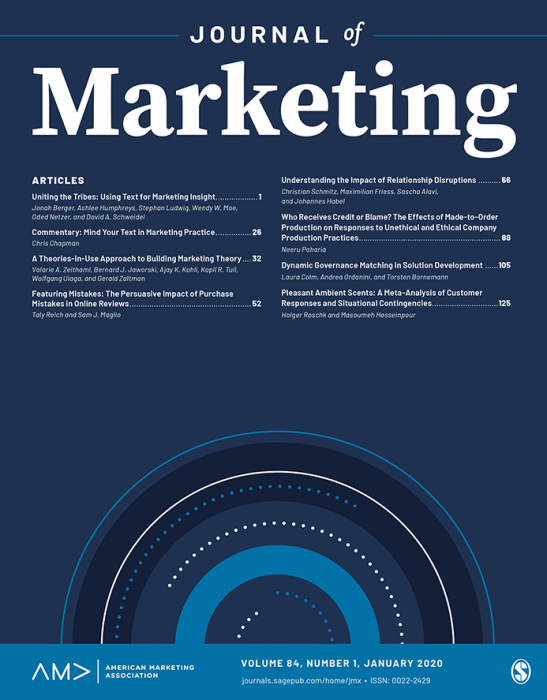差别化环境:人-物取向与反馈效应
IF 10.4
1区 管理学
Q1 BUSINESS
引用次数: 0
摘要
在将品牌扩展到低合身品类时,管理者经常面临保护母公司品牌资产的挑战。本文建议管理人员可以通过使用独特的细分策略以及根据品牌个性构建延伸适合度来最大限度地减少低适合度延伸的负面影响。具体而言,本研究将人-物导向作为品牌延伸语境的框架,根据消费者的环境导向对其进行有效的细分。以人为本的人有选择地检查环境,并将注意力转向人和社会关系。面向事物的人主要关注对象及其功能。我们证明,以事物为导向的消费者不太可能表现出负面反馈效应。当低合身的延伸与母品牌的个性相一致时,以人为本的消费者反应积极。重要的是,我们证明了人-事取向可以通过可观察的代理(例如,大学专业,媒体背景)在管理上加以利用。这些发现为定制品牌延伸策略提供了可操作的见解,以瞄准正确的受众,有效地扩展框架,并最大限度地减少母品牌稀释。本文章由计算机程序翻译,如有差异,请以英文原文为准。
EXPRESS: The Differentiated Environment: Person Thing Orientation and Feedback Effects
Managers often face the challenge of protecting parent brand equity when launching brand extensions into low–fit categories. This article recommends that managers can minimize any negative impact of low fit extensions by using a unique segmentation strategy as well as framing the extension fit in terms of brand personality. Specifically, this research introduces person–thing orientation as a framework in the brand extension context to effectively segment consumers based on their environmental orientation. Person-oriented individuals selectively examine the environment and direct their attention towards people and social relationships. Thing-oriented individuals primarily focus on objects and their functionality. We demonstrate that thing-oriented consumers are less likely to exhibit negative feedback effects. Person-oriented consumers respond positively when low–fit extensions align with the parent brand’s personality. Importantly, we demonstrate that person thing orientation can be leveraged managerially through observable proxies (e.g., college major, media context). These findings offer actionable insights for tailoring brand extension strategies to target the right audience, frame extensions effectively, and minimize parent brand dilution.
求助全文
通过发布文献求助,成功后即可免费获取论文全文。
去求助
来源期刊

Journal of Marketing
BUSINESS-
CiteScore
24.10
自引率
5.40%
发文量
49
期刊介绍:
Founded in 1936,the Journal of Marketing (JM) serves as a premier outlet for substantive research in marketing. JM is dedicated to developing and disseminating knowledge about real-world marketing questions, catering to scholars, educators, managers, policy makers, consumers, and other global societal stakeholders. Over the years,JM has played a crucial role in shaping the content and boundaries of the marketing discipline.
 求助内容:
求助内容: 应助结果提醒方式:
应助结果提醒方式:


